Attention Policymakers: We Need to Update the School Curriculum

Written by Naida Allen
Naida is a writer and blogger, fuelled by coffee and dark humour. She is a mental health advocate and regularly uses her own experiences to raise awareness about social issues. Her aim is to break stigma around taboo topics and enlighten the masses through the art of words. She loves dogs, and hates the patriarchy.
Given the significant impact of the Black Lives Matter movement on the criminal justice system, it’s only natural for this event to trickle into the education system. The British school curriculum is outdated at best. It will come as no shock to know that 85% of secondary school texts studied were written by White authors. The lack of diversity is damaging both socially and educationally. The year is 2021, and we are still waiting for change.
After the murder of George Floyd, the world woke up. We could no longer stay silent; the time to take action had arrived. Amongst many deep-rooted racist issues that still exist in British society, one that became impossible to ignore was the issue with the school curriculum. Secondary school pupils across the country (and the world for that matter) are not taught the truth about the UK’s shady history. The broad lack of diversity exists across all school subjects, from English and Drama to History and Science.
Even the American K-12 curriculum lacks punch. The Coalition of Educational Justice (CEJ) in New York recently published a shocking set of statistics that puts the school curriculum to shame. Their enquiry into the lack of diversity found that 4 out of 5 books studied in English were written by a White person. Similarly, a national UK study by Penguin Books found that less than 1% of GCSE students studied a book by a writer of colour.
It goes without mentioning that it is not just Black authors and people of colour who are marginalized. No; it is also women — and worse still — Black women who are frozen out. There is rarely a platform for LGBTQ+ authors, or awareness in their struggles, which adds to the exclusion and creation of ‘otherness’.
Yet it has to be a top-down approach for us to succeed in any social change. The current school curriculum contributes to perverse attempts to sugarcoat the past, allowing White people to hold the monopoly of power. Gestures that arguably verge on tokenistic, like “Black History Month” are the bare minimum. They are designed to keep the peace, but are ultimately just performative in nature. As Jean Alexander states, “it is a game play for the survival of a democratic society”.
My message today is to the policymakers: we need to update the school curriculum. If history, implicit and institutional racism, or celebrating Black achievements are not prioritised in schools, we can assume change still sits on the backburner. Young people will only learn when we own up to our mistakes. For there to be any hope in a harmonious society, we need to right our wrongs as best we can. The optimum approach is an authentic one.
So, teach students about Britain’s role in colonialism. Explain why the prison population is overrepresented by Black people and ethnic minorities. Study fiction and non-fiction texts across all subjects written by non-white authors. Take English as an example; whilst Shakespeare is undoubtedly important for the development of language, Zora Neale Hurston’s Their Eyes Were Watching God remains underrepresented. Consider adding Zadie Smith and Reni-Eddo Lodge to the English syllabus. This will by no means erase centuries of oppression; it will, however, inspire development.
The fact of the matter is, these texts are not hard to come by. There is a long list of potential contenders written by Black women, from textbooks and fictional narratives to plays; and they are all critically-acclaimed. Why, then, are we not capitalising on this opportunity? There is no better way to teach students about human rights and social justice than directly from the horse’s mouth.
An example of where this sincerity has worked is in Germany; their school curriculum shows significantly more willingness to revisit and admit to past mistakes. Teachers will openly discuss the German role in the Holocaust and WW2; many students will at some point visit a concentration camp. At no point do they attempt to disguise their atrocities. In doing so, they are now more respected by other nations. This is how to rewrite the future.
The irony is, British schools are the first to slander Nazi Germany for their war crimes, particularly when it comes to the Holocaust. Where is this zealous attitude when documenting our own actions on the History syllabus, for example, as colonialists? Instead, students learn about what makes Britain so Great. We share how we were the first to abolish slavery, but not that explorer, John Hawkins, was the first to start the slave trade in 1562.
Reform starts in school. We cannot expect the youth of today to differ from our predecessors if we do not light the torch. For students to thrive, they need to be represented in all their diversity. It is simply not good enough for only 0.1% of pupils to study a text by a Black female author. When you do not see yourself represented, your dreams and options are extremely limited. This is what inevitably leads to apathy and missed opportunities in the community.
We need to mention the achievements and discoveries of both people of colour and Black people – scientists, mathematicians, poets, historians. For example: Madam C.J. Walker who created the first African-American hair care products; Elijah McCoy who invented the ironing board; Tu Youyou who discovered artemisinin, the treatment for malaria.
At the very least, we need to incorporate texts written by minority authors to study in the classroom. It’s important to keep current and move with the times, rather than promote a false representation of the “good old days”.
Let’s inspire all students — regardless of their gender, race, or sexuality — to know their worth. Britain as a whole needs to understand their history and address their ignorance. The only way to do any of this is through policy change; otherwise we remain stuck in bad habits. It is time to update the school curriculum.
This is not a plea. It is an order.
Men, women and the rest of us: a brief guide to making university classrooms more accessible to trans and gender non-conforming students
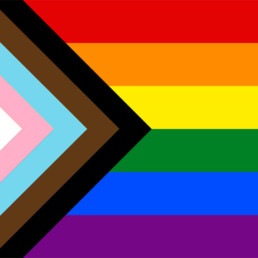
Written by Kit Heyam and Onni Gust
Onni Gust: Associate Professor of History, University of Nottingham. Author of Unhomely Empire: Whiteness and Belonging, c.1760-1830.Kit Heyam: Lecturer in Medieval and Early Modern Studies at Queen Mary, University of London, freelance trans awareness trainer, and queer public history activist.
This is a guide for academic teachers who want to get the best out of their trans and gender non-conforming students, and to ensure that they can fully participate in the classroom and in their studies.
1. Avoid making assumptions
Don’t assume you know a student’s gender based on body-type, voice or even dress. If they do disclose their trans status, don’t assume that they have or will undergo any form of medical transition; ask them how you can support them. All you really need to know is how to address them.
2. Names and pronouns are all you need
Names and pronouns are all you really need to know from your students. For trans and gender non-conforming students, the name, sex or title on their student record may be wrong. Using a student’s ‘old’ name may force them to come out, which can be incredibly distressing as well as violating the Equality Act. To avoid this:
Names:
- Instead of calling out the register, ask students to either write or say their names.
- Be up-front with students and ask them to see you, or email you, after class if for any reason their name has changed.
- Online platforms often automatically display names from University records. Familiarise yourself with your university’s name-changing processes – and if there aren’t any, insist that they be put in place.
Pronouns:
- Even if you think it’s obvious, explain to students how you like to be addressed. This models the process for all students and makes it much easier for trans and gender non-conforming students to state their own pronouns. Regardless of whether you’re trans or not, it also sends a powerful signal, showing you’re aware you can’t tell someone’s gender just from looking at them.
- If you ask students to introduce themselves to the class, give them the opportunity, but not the obligation, to include their pronouns.
- Gender-neutral pronouns, which some students will use, include the singular they/them/their; ze/hir/hirs; fae/faer/faers. The list is growing: if you’re unsure, ask the student to model the usage for you, or research it online.
- If you get a student’s pronoun wrong, apologise, correct yourself and move on.
3. What if other students constantly misgender a student in your class?
If a trans or gender non-conforming student brings this to your attention, it may be worth taking that student aside and talking to them. If, as a transgender teacher, I suspect that this is active transphobia, I would probably ask a cisgender colleague to intervene.
4. How else can I make learning more inclusive?
Consider your syllabus. It may be necessary to teach material that uses outdated/pejorative language, or ideas, about gender and sexuality (and/or race, class and disability). Flag up the problems, explain to your students why these texts are necessary to engage with, but make it clear that you do not support these ideas and that you invite critique.
Think about how you’ll manage any resulting questions or disagreements. How can you help your students to create a trans-inclusive seminar environment without making them feel overwhelmed, alienated or defensive?
5. Pastoral care for trans and gender non-conforming students
Awareness of trans and gender non-conforming identities is moving at a fast, but very uneven, pace. While your students will hopefully have support at home and at university, that’s still not the case for the majority. In a recent UCAS report, 17% of trans university applicants reported having had a bad experience at school or college, and trans applicants were less likely than LGB applicants to have good expectations for university. The report recommends that universities and colleges introduce bespoke resources to support trans students.
Trans people remain disproportionately affected by mental health problems.If your trans and gender non-conforming students disclose mental health problems to you, treat them as you would any other student, butbear in mind the following:
- Not enough counselors or GPs are trans-aware; some have been known to do more harm than good.
- Specialist gender services have waiting lists of over two years from referral by a GP.
If a student comes out to you as trans part-way through a semester:
- Think about your reaction: this is a vulnerable moment for the student. If you don’t understand something, ask politely and calmly for clarification.
- Don’t make any assumptions: trans people differ in their identities and their choices about social and/or medical transition.
- Let the student take the lead: support them if they want to come out to their class, but don’t force it.
Further resources:
For you:
UCAS, Next steps: What is the experience of LGBT+ students in education?
Equality Challenge Unit, Trans staff and students in HE and colleges: improving experiences
For trans and gender-nonconforming students:
GIRES (Gender Identity Research & Education Society – including a directory of support groups)
A New School Year. A More Inclusive School Year?

Written by Johan Jensen
Director of All-in Education. His consultancy work includes organisational development, leadership development, strategic communications, product development and diversity & inclusion strategy development.
In July 2020, I urged school leaders to be cautious. In the wake of George Floyd’s brutal murder and the global reactions to racism, I was approached by numerous education institutions who felt bewildered about what to do next. There was certainly a sense of anxiety. It was understandable that organisations wanted to do something and demonstrate activity. I told them, “If you panic into this work, you’ll soon see that you’ll panic out of it”. In my experience this still stands true.
Over the past year, the most powerful discussions that we have had with school leaders have been about self-reflection, especially how we relate and respond to difference in all its forms. The conclusion of most of those conversations is that when we take an honest look at ourselves and the people around us, we don’t like diversity. In fact, I’d go as far as saying that we are naturally geared towards repelling it. It’s called ‘homophily’, the love of same.
Achieving greater diversity and more inclusive schools requires purposeful self-reflection, critique and behaviour and systems change if we are even going to have a fighting chance to create the change that education still so desperately needs.
The majority of the schools, and groups of schools, we’ve worked with have really taken this to heart. It’s been challenging for them. They’ve had to confront uncomfortable truths about themselves and the institutions they’re responsible for. But, they’ve seen how this won’t serve the purpose of creating the next generation of leaders, followers and members of society. This is ground-breaking stuff.
The schools that our team has worked with have taken the first step in this journey, which is to listen. Listening to staff, students and alumni about their experience of belonging, psychological safety, diversity and inclusion. By supporting the senior leaders through coaching, they’ve been able to really listen to what their peers, staff, pupils and former pupils are experiencing and giving them the grounding for creating an even better experience and future.
The strategy that follows these first steps is long term and focuses on values, the business case for changing the way the school operates, the vision for what an inclusive school looks and feels like and how the institution will hold itself accountable in achieving this change.
Some schools have achieved incredible results, with one grammar school recruiting 80% non-white British staff in this year’s September intake. But, achieving greater diversity is only part of the puzzle, achieving inclusion is a totally different game.
How will you create an inclusive school?
We are delighted to be running with RSAcademics a free case study webinar on 13th October to share our experiences and those of some of our clients over the last year, and we look forward to seeing you there to help you continue your thinking on inclusivity.
Please sign up to the webinar here.
Implementing Effective Flexible Working Practices Training for School Leaders
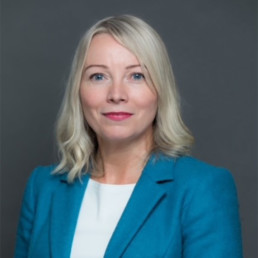
Written by Mandy Coalter
Mandy is the founder of Talent Architects, helping schools be great places to work. She is a published author and was named as one of the Top 10 most influential HR people. She is the former Director of People at United Learning.
Want to better promote inclusive working practices?
Getting more flexible working requests?
Wondering how to retain talent?
Want to enhance your ability to advise on new ways of working, how to adapt, as well as promoting staff wellbeing through flexible working practices?
Our sessions could be for you
The road to a flexible and agile workforce is more important now than ever before, especially in schools. Expanding opportunities for flexible working will be particularly important post-pandemic, where remote and hybrid working have become widespread in some sectors. Creating more scope for flexibility is possible in all roles in a school, promoting a better work-life balance, supporting the diversity and inclusion agenda and addressing the recruitment and retention issues in the sector. Join Timewise, the flexible working experts, and their panellists in a series of webinars, Q&As and drop-in clinics to learn more about what a proactive, whole-school approach is about, starting in October:
Webinar for Heads: Tuesday 05 October at 10am (90 minutes)
Register here https://bit.ly/3jR2pMk
Webinar for School Business Professionals/HR: Wednesday 06 October at 10am (90 minutes)
Register https://bit.ly/2Uc4hXp
Webinar for Governors & Trustees: Tuesday 12 October at 2pm (60 minutes)
Register here https://bit.ly/2VPlc2b
The Important Role of the DEI Leader in Our Schools

Written by Hannah Wilson
Founder of Diverse Educators
In the wake of George Floyd’s murder last summer many people from my network started disclosing that they were feeling compromised – they had been approached to lead DEI in their context, but they knew it was because of their lived experience ie they identify as belonging to one of protected characteristic groups.
Each person shared how they felt the burden of responsibility but also that they were acutely aware of the visibility and the vulnerability of this position. Moreover, most of them had been asked to take on this role for free (ie for love and for passion). They were not being offered additional time, additional training nor additional money.
We created a DM group that soon filled up on Twitter so we created a 2nd one – nearly 100 people who are leaning into leading DEI work in their schools, colleges and trusts. It is notable that the vast majority of these individuals were assigned female at birth and identify as being women. Many have an intersectional identity and are women of colour, women of faith, women who are LGBTIA+ and women who are parents/ carers. An important factor to consider as we bang our drum about asking people to do this work (ie burden and additional load) for free.
In response, Angie Browne and I developed the DEI Leaders Programme to support each individual on their journey to combat the fear, to address the isolation and to create a safe space to explore the vulnerability of this important work. We have both led this work on our own career journeys and navigated the systemic, structural and societal barriers that come with the territory. We have stories to share and war wounds to lick, but we can also share how we shaped our strategies and illustrate the impact we had and the legacy we created.
In addition to the programme, through the #DiverseEd network I created a space each half-term for DEI leaders who are not formally working with us through the programme to come together informally to form a DEI Leaders Network as an opportunity to connect, to collaborate, to peer support and to share the learning. We are also planning an annual DEI Leaders conference to share best practice and deepen knowledge and understanding in June.
I have also begun to collate a recruitment pack of DEI leaders job descriptions, person specifications and adverts so that each individual can negotiate the framing of their role in their school/ trust. The title of the role is up for debate and varies from setting to setting. I share in my training sessions that a trend I have observed in my cross-sector LinkedIn network is that in corporate settings mande D&I/ EDI leads are now being called Head of Belonging. I love this reframe and personally think that the education sector should adopt it too.
It has been heartening to see a flurry of tweets in the last few months of people from our network and from our programme being formally appointed and properly remunerated for this role in our schools. Congratulations to those who have successfully been appointed and those who have negotiated a defined role. This is still the minority but there is a glimmer of hope that organisations are recognising the need for a defined role and remit for whoever is leading DEI.
Our provocation to the school system:
Would we ask a SENCO or a DSL to strategically lead their whole school responsibility without framing their role, giving them additional time, adequately resourcing their area (budget for books/ training) and elevating their sphere of influence to at the very least associate senior leadership?
For all of the schools leaning into DEI work we encourage you to review your infrastructure. The DSL and SENCO do not carry the burden of all of the safeguarding and all of the SEN work on their shoulders – they have a team of people they can distribute the load across, but moreover the collective responsibility of the whole staff team is expected. We believe that DEI needs to be framed in the same way.
We would not ask an adult who had been vulnerable to lead safeguarding based on their lived experience nor an adult with an additional need to lead SENCO without the framing, the training, the support and the accountability around them, once they had been identified as the most appropriate person to lead this work and fulfil the responsibilities of the role. So we should not be approaching the staff of colour, the staff who are LGBTQIA+ to do this work, simply because of their identity, and moreover we should not be asking them to do it without a formal process to identify they are the person who is best-positioned to lead this work, and thereby appointing them, announcing them and appropriately remunerating them.
The role of the DEI Leader in our schools is an important one as it embodies our commitment to this work, it elevates the status of the strategy, it creates visibility in the school of diverse role models, it amplifies the voices of diverse stakeholder groups and it centres belonging in the culture, the curriculum, the policies and the practices throughout the school.
So we need to be very careful that through our DEI strategies we are intentionally dismantling barriers instead of further perpetuating the glass ceilings, the concrete ceilings, the glass cliffs and the pay gaps that already exist in the school system. Formally appointing and remunerating the people leading this work is a great place to start as our schools continue on their journeys to unlearn and relearn why and how representation matters.
Engaging and Empowering Students in DEI Work

Written by Lois Nethersell-Webb
Lois is a History teacher and DEI Lead at a rural Norfolk High School. In this role she is leading whole school training on diversifying the curriculum. Lois is also a founder of the Norfolk DEI Network and is passionate about encouraging and guiding young people to become change makers.
What kind of adults do we want our students to become? Do we want them to passively accept the status quo or do we want them to become active citizens who question the world around them? If the latter, then we must model and shape this behaviour in schools by providing them with opportunities to express their views and lead on causes that ignite their passions.
Students need to see that becoming involved in DEI work within schools or, indeed, wider society, is a sign of strength. When the government views standing up for marginalised groups as ‘woke’ we are fighting a populist narrative. Educators need to demonstrate to students that standing up to a friend who uses racist or homophobic slurs is not woke, it is strength. Educators need to demonstrate to students that calling out your mate who has made sexualised comments to a female student is not woke, it is strength. Educators need to demonstrate to students that refusing to mimic the accent of a new teacher is not woke, it is strength.
One way that schools can demonstrate active citizenship to the pupils in their charge is through setting up intersectional diversity groups. Whilst student groups focused on one particular protected characteristic, such as Pride Club, have their place, an intersectional group enables students with different protected characteristics, and their allies, to come together and support each other. We must create safe spaces for students to discuss concerns and lived experiences before supporting them to curate ways in which to spread their narratives across the whole student body.
Our student Diversity, Inclusion, Campaigns and Equality (DICE) group have been instrumental in raising awareness of a number of societal issues. Whether it be a cube of truth focused on male mental health or the lunchtime climate change protest, our students have thought of innovative and engaging ways to enlighten the wider student body and get them thinking about how change can happen. Showing students how to use their voice for good and how to channel their views is an essential part of their education.
All too often running student groups, like DICE, is left to chance. If there is a member of staff with a protected characteristic or who has a particular passion for DEI work then the student groups are formed. This should not be the case. LGBTQ+ teachers are tired of being the ones to start the Pride Clubs in schools. Black teachers are tired of being the ones who support students who have experienced racism. We need our allies. We need other educators, particularly white, able bodied, cisgendered male educators, to stand with us and help set up student groups. The power you hold is immeasurable. Help us set up our student groups and demonstrate that DEI work is the work of all.
To create a truly diverse, equitable and inclusive society all adults, no matter their lived experiences, must see tackling injustice and inequality as their responsibility. For this to happen we must start by showing students that DEI work is a collective responsibility. If you want to help your students become young changemakers – set up an intersectional student DEI group; neither you nor your students will regret it.
#DiverseEd’s Top 10 Blogs of 2020-21

Written by DiverseEd
Diverse Educators started as a grassroots network in 2018 to create a space for a coherent and cohesive conversation about DEI. We have evolved into a training provider and event organiser for all things DEI.
We love to amplify the voices, share the journeys, and celebrate the stories of our community. Our blogs vary from sharing lived experience, to reflecting on classroom practice and curriculum design, to evaluating the impact of policy changes. We published 150 blogs from our network last academic year. You can meet our bloggers here and you can review our collection here.
Deepening our thinking around DEI starts with who and what we are reading, helping us to develop our confidence and our competence, both individually and collectively. Reading the blogs by our community provokes reflection and stimulates conversations to help us all understand the breadth and the depth of issues we need to develop an awareness of.
Themes explored in the 2020-21 blog collection include: allyship, belonging, careers, coaching, commitment, community, curriculum, culture, governance, HR, identity, ITTE, language, leadership, policy, recruitment, reflection, representation, research, safeguarding, strategy, teaching, wellbeing.
Here are our Top 10 Most-Read #DiverseEd Blogs in the 2020-21 academic year:
- How do we deal with racism in the classroom – Hannah Wilson
- How to promote an anti-racist culture in social work – Wayne Reid
- Interactive diversity calendar 2021 – Carly Hind/ Dual Frequency
- How does material deprivation intersect with ethnicity to understand the variations in the achievement among BAME students – Nicole Edwards
- Don’t tuck in your labels – Bennie Kara
- Dear Secretary of State – Hannah Wilson
- Gender is wibbly wobbly and timey wimey and gloriously so – Matthew Savage
- Engaging with diversity – giving pupils a voice – Gaurav Dubay
- Black lives matter, then now always – Wayne Reid
- Breaking the cycle anti-racist plan term 1 – Dwain Brandy
Thank you to everyone who has contributed to our #DiverseEd date and please do get in touch if you would like us to publish you. You can find out more about how to submit here.
LGBT+ inclusive education helps all young people, whether they are LGBT+ or not
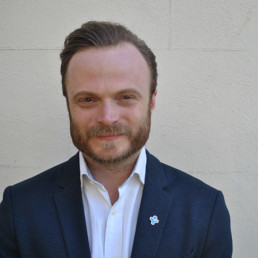
Written by Dominic Arnall
Chief Executive of Just Like Us, the LGBT+ young people's charity.
When Pride comes around, it can be easy to convince ourselves that so much has changed in terms of marriage and parental rights for adults, that it must be far easier growing up LGBT+ in 2021. Sadly, this is a common misconception and the research paints a much darker picture.
Just Like Us decided to commission independent research, conducted by Cibyl, to get a clear picture of how LGBT+ young people have been impacted, what is happening in terms of LGBT+ inclusive education, and how educators feel about implementing it.
When the pandemic began we expected that LGBT+ pupils may struggle more – perhaps stuck at home with unaccepting families, cut off from their usual support networks and struggling to find acceptance at school. What the independent research found was horrifying – LGBT+ young people are twice as likely to have contemplated suicide, and Black LGBT+ young people are three times more likely.
Our report, ‘Growing Up LGBT+’, surveyed almost 3,000 school pupils aged 11-18 (over 1,000 of whom were LGBT+) as well as more than 500 school staff. The results are very clear: LGBT+ young people are twice as likely to be worrying daily about their mental health and feeling lonely on a daily basis during lockdowns.
While the pandemic has of course been tough for everyone, including immense pressure on educators, it is devastating to see that LGBT+ young people are twice as likely to be struggling with their mental health and wellbeing on so many fronts – from depression to anxiety and panic attacks, there remains much work to be done.
LGBT+ school pupils are also twice as likely to have been bullied and just 21% told a teacher at school. Only 33% of LGBT+ pupils say there is a clear process for reporting anti-LGBT+ bullying in their school.
So what can we do? The good news is that the independent research found that pupils in schools where there is positive messaging about being LGBT+, pupils are less likely to have had suicidal thoughts and feelings – whether they are LGBT+ or not. The statistics are clear: all pupils benefit from a LGBT+ inclusion in schools.
74% of LGBT+ pupils who have never had positive messaging from their school about being LGBT+ have contemplated suicide but this drops to 65% when their school provides strong positive messaging about being LGBT+.
Non-LGBT+ pupils also benefit from LGBT+ inclusion in school – 33% of non-LGBT+ pupils who have never had positive messaging at school have contemplated suicide but this drops to 28% when there is strong positive messaging in their school.
A perhaps surprising finding from the independent research was also that the majority of all young people are very pro-trans. 84% of 11 to 18 year olds say they would proudly support a friend if they came out as transgender. 57% say they already have a friend who is trans. This really shows how important it is that we listen to young people’s voices and enable them to pave the way for positive change when it comes to LGBT+ equality.
Lastly, we are very concerned by the high proportion of LGBT+ educators who are facing challenges and fears about coming out at work and implementing LGBT+ inclusion in their schools. 40% of LGBT+ primary and secondary school staff are not out to their pupils.
Some might say that there’s no need to come out to pupils and there certainly should never be pressure on anyone to come out, but we are deeply worried about school staff who feel afraid to be themselves at work. No one should feel the need to hide who they are married to, who their families are or simply who they are in their jobs.
We also found that 31% of LGBT+ school staff say their colleagues or school board are a barrier to implementing LGBT+ inclusion in their school. The findings show there are still huge challenges that educators face in trying to bring about positive change and simply letting pupils know that: LGBT+ people exist and that’s OK.
As always, Just Like Us is here to support all educators – LGBT+ or not – with making schools safer and happier places for their pupils. You do not need to be an expert, it just takes a willingness to want to support LGBT+ young people who are so disproportionately struggling right now.
School Diversity Week is happening 21-25 June and it’s not too late to get involved. If you work in a primary school, secondary school or college, please sign up for free and we’ll send you a digital toolkit of resources for all key stages to help you celebrate.
Let’s create a world where LGBT+ young people can thrive.
Antiracism through Opportunity
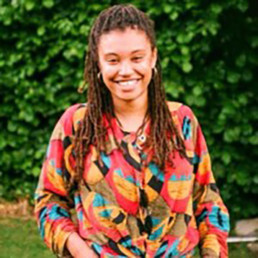
Written by Cassie Cramer
Real World Learning Programme Manager at School 21 in Newham, London
How School 21 approaches work experience through and antiracist lens
School 21 is a place that has always strived to provide opportunities for our diverse young people to succeed in the 21st century. Recently, it has been made clear that success by our definition requires taking actions to identify and act against racial inequality both inside and outside the classroom. In 2020, School 21 has made a concerted effort to promote equity, inclusion and diversity within our community. Through various initiatives, such as diversifying our curriculum, creating more inclusive recruitment processes, and the formation of an antiracism working group, we are doing what we can to create a thoroughly antiracist organisation. There are, however, some things School 21 has done for some time that in unexpected ways contribute to our newly articulated antiracist agenda. One of these things is the development and implementation of the Real World Learning Programme.
What is Real World Learning?
The Real World Learning Programme was started in 2015 as a reimagining of work experience. It provides both students and their host workplace with something that is more meaningful and authentic than traditional work experience. At School 21 all Year 10 and Year 12 students take part in 1-2 projects with a partner organisation for 12-17 weeks. Students spend one afternoon each week out of the classroom and in the real world, where they work in teams to solve problems for their host organization. Students take the skills they have developed through project-based learning in the classroom, and apply them to real life projects in the working world. Students come away with a tangible product, a variety of transferable skills, and a totally novel experience which can significantly impact their futures. Real World Learning at School 21 brings students and the professional world together in a meaningful way and raises aspirations of students, while widening the perspectives of employers.
An opportunity to build a network
Some students work with carpenters to make new chairs for our school. Others work with international financial institutions. From local primary schools to world renowned publishing houses, we work hard to provide students access to opportunities that are too often reserved for those with connections and privilege. The phrase, ‘It’s not what you know, but who you know’ has continually been proven true on small scales and large. Work experience, something that for many is relatively inconsequential, has the potential to create the opportunity for students to start a professional network. This provides marginalised young people the chance at the kind of network their more privileged peers may have through parents, private institutions or their school’s alumni. By simply giving students the chance to show their best selves, through an elongated and scaffolded work experience programme, we are in a very small way working to create a more equitable society.
Exposure goes both ways
The Real World Learning Programme strives to get our students out of the bubbles they are so accustomed to. It exposes them to careers, locations and individuals that they may never come across in their day to day lives. It is not, however, only the students whose boundaries are pushed. The bubbles that many corporations and organisations function in looks very different from our students’ bubbles, but they are bubbles nonetheless. By putting our students in white dominated spaces – like in the sky scrapers of Canary Wharf – you are not only raising their aspirations, but you are demonstrating what young, diverse people of colour from East London are capable of. The exposure that the programme offers, especially as it is over a significant period of time, works to confront implicit bias and racist stereotypes. It puts young ethnically diverse people in boardrooms and demands their thoughts are considered.
Many projects that our students have worked on explicitly seek to rectify racism in the workplace. We’ve had students working at the Ministry of Justice create a training video which sought to help employees identify and avoid implicit bias based on race and gender. Students have worked with the Metropolitan Police to create campaigns which aimed to ease tensions between young East Londoners and police officers who work in the area. HSBC has had our students reimagine their hiring processes, so that they are more attractive employers to a diverse pool of candidates. It is not only students who work on projects about diversity and inclusion in the workplace who contribute through Real World Learning to School 21’s antiracist agenda. Every student who completes the programme and can therefore see their future selves in positions of influence is a tiny rebellion against the white hegemonic structures that underlie so many industries.
Representation matters
Committing a total of 8.5 entire school days to work experience is not the only way to create a careers programme that is actively anti-racist. It starts with not limiting your students, and reflecting on your assumption of their capabilities. I’ve seen some of our most vulnerable students who struggle in a classroom environment do their work when they put on a suit and play the role of consultant. If they never get the chance to be in these scenarios, how will they know they deserve to be? Representation is also something that is so important in careers education. If students don’t have the time to form relationships with professionals, it is vital that they are exposed to professionals that they can relate to. If every solicitor or CEO you meet is white, it is hard not to jump to conclusions about the prerequisites for these sorts of careers. Sometimes interactions with professionals must be fleeting, but for them to be impactful there has to be some common ground and it is always worth the effort to find someone who can relate to students.
Looking at the big picture
The Real World Learning Programme is by no means perfect. Sometimes students get fired, employers end up frustrated and projects don’t get completed. The quality of projects are not always up to our standards, and students sometimes misbehave. These things seem insignificant though, if you think of the bigger picture. We unfortunately live in a society that is segregated. Race, class, wealth and other factors limit the movement of individuals in their professional lives. Work experience can be seen as an exchange of sorts, exposing students to foreign situations, and exposing employers to the talent, spark and ingenuity that is being nurtured in a place like a state school in Stratford, East London. We believe our students are capable of making real and lasting contributions to the companies they work with, and while they don’t always complete their brief, or win their pitch, they do always leave a mark on those they interact with.
We can, and should, think about work experience as an opportunity for students to experience the real world and gain valuable skills. This does not, however, have to be the sole purpose of it. By providing students with opportunities for their voices to be heard, and their opinions valued, the Real World Learning Programme is creating space for marginalised individuals to make their mark on institutions that have ignored them for too long. It allows students to see themselves as equals in a room of professionals who often have had a very different lived experience. Giving these opportunities to students, and supporting them to use their agency is an antiracist practice that more schools should be empowered to provide. I’d urge any enrichment manager or careers leader in a school to think about what opportunities the most privileged students have access to, and how this allows them to develop skills for the real world. It is absolutely possible that all students receive opportunities to develop those same skills while simultaneously raising aspirations and disproving racist assumptions. Work experience can be a vessel through which we don’t just acknowledge racial inequality, but actively empower our students to dismantle it from the inside.
Prepare students for the world, and the world for our students
Work experience is many things. It can be a taste of independence, a rude awakening, a rite of passage or a formative experience. At School 21, we also see it as a chance to promote equity and spark change that reaches far beyond our school walls. Through Real World Learning students can push their own agendas, and let organisations big and small know what matters to them. They can pave the way for others from similar backgrounds. They can show professionals that young people of colour can disrupt the status quo and contribute just as much as those who society privileges over them. They can see themselves as someone important, capable and respectable in a world that paints them as the opposite. If we see work experience as a chance to prepare our students for the working world, but also prepare the world for our students, we can do our part as educators to dismantle the systemic racism that is still rampant in workplaces and in society.
Education as the Practice of Freedom
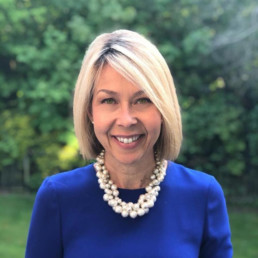
Written by Laura Ciftci
Head of School, NET Academies Trust, #BigLeadershipAdventure participant.
As a rookie member of Big Education’s ground-breaking leadership programme – Big Leadership Adventure – I have been exposed to a wealth and breadth of experiences, key-note speakers, ideas, design-thinking, innovation and new ways of leading. All with the key purpose to ‘develop the mindsets, competencies and behaviours required to innovate in education’.
More recently, we experienced a headline module on diversity, equity and inclusion. Hannah and Adrian McLean, our guides for this module, did not pull any punches and stated from the outset that this session was going to be challenging and would possibly make many members feel rather uncomfortable. Nevertheless, they both insisted, education – especially educational leadership – needs ‘to start getting comfortable with being uncomfortable’. In truth, I found the whole process immensely challenging, both professionally and personally.
In hindsight, the module’s real impact was to champion our cohort into action – real action – with a determination to transfer theory and rhetoric into practice. This rallying cry to alms for all leaders was a clear message on the importance of producing and utilising a diversity, equity and inclusion strategy within our schools. Moreover, instigating conversations that would raise further questions around how we need to rethink teaching practices and policies in an age of multiculturalism. Otherwise, how else would we be able to educate our children to address the many disparities and inequalities within our society?
To Allyship or not to Allyship…? That IS the question:
One such practice and commitment centred round ‘allyship’; more specifically an expectation for all Big Leadership Adventurers to acknowledge and engage with the ‘allyship continuum’: from apathetic, to aware, to active and finally onto the desired goal – to be an advocate for diversity, equity and inclusion. An advocate of diversity, equity and inclusion would actively highlight and raise questions about situations, events, meetings, settings, organisations, senior leadership teams, subject leaders and headteachers, whereby the representation or membership did not reflect the cohort or group they were leading. What struck me as the most poignant part of the whole ‘allyship process’, was a genuine recognition from all the leaders in our cohort, that their journey along the allyship continuum would be a deeply, individual and personal journey.
Moreover, I realised, as I listened to the many painful and explicit narratives of prejudice and racism experienced by my colleagues – as infants, school children and adolescents and now as adults – that my journey to where I am today, had been an infinitely easier one, beyond my ‘disadvantaged’ label. If anything this made my purpose clearer – I wanted to celebrate and showcase our school’s rich diversity, to ensure that we authentically challenged institutional racism and other forms of discrimination. Subsequently, in order to kick start our school’s journey to allyship, we drafted a whole school strategic approach to diversity, equity and inclusion, that embraced the voice of our staff, pupils and wider community. Almost instantly, staff recognised that this commitment would take us beyond diversity, equity and inclusion, but further into social action; the co-dependence of societal changes through a strong, ‘lived’ diversity, equity and inclusion strategy. A focussed strategy, with professional training from the charismatic and knowledgeable Angela Browne helped us to explicitly outline expectations for the culture and climate of our school; facilitating classroom learning to connect with the experiences, histories and resources that every pupil brings to their classroom. Imagine a whole literacy spine that included the cultures, experiences and backgrounds of the pupils they sought to teach! Whilst this process may be in its infancy, we are rightly proud of its authentic germination …
Why here? Why now?
As I reflected further upon the intensity of that diversity, equity and inclusion module, it became apparent we were really being asked to champion a social conscience and critical pedagogy for our future pupils, leaders, work force, politicians and so on. Recognising that pupils and staff need to feel safe, valued, listened to and genuinely appreciated for who they are, rather than complying to a given, predetermined expectation. This sense of belonging, coupled with the freedom and encouragement to determine and discover who they are, would help our pupils to realise that the education system does not define them. Once equipped with the necessary skills, knowledge and beliefs, from diverse and inclusive school communities, they will have the freedom to construct their own unique futures for themselves. Armed with a broad skills base, resilience, acceptance (rather than tolerance, thank you Adrian Mclean for assisting me with the semantics), a good work ethic, humility and an acute awareness of social justice, our pupils and staff will in turn, readily challenge cultural, social and economic biases, that alas, are still systemic within society today. Never has the time been more right to challenge social inequality and to encourage pupils (and staff) to take positive and constructive action under the cultural umbrella of diversity, equity and inclusion.
Hope for the future…
Clearly, the education system is neither perfect nor paradise; quite the contrary in fact. Nevertheless, the system with all its limitations, remains a location of potential, hope and possibility. In that field of possibility, we have the opportunity to work towards diversity, equity and inclusion for our pupils, staff and wider community members. Likewise, to demand of ourselves and those in our charge, ‘an openness of mind and heart that allows us to face reality even as we collectively imagine ways to move beyond boundaries, to transgress. This is education as the practice of freedom’. (Bell Hooks)
And finally…
As our second day of diversity, equity and inclusion module concluded, I felt a deep kinship and professional respect for my fellow ‘Adventurers’. This diverse group of authentic professionals, had challenged me, and in and through that challenge, had allowed me a space of radical openness where I now felt able to authentically support diversity, equity and inclusion, within my own setting. This promising start would, I hope, encourage those in my charge, to learn and grow without limits. This gift of ‘freedom’ for our children today, now seems totally achievable.

